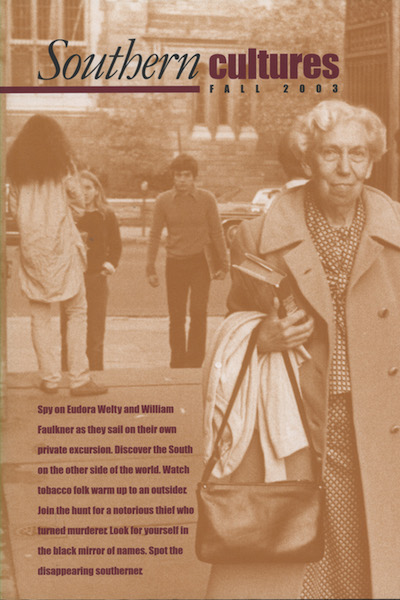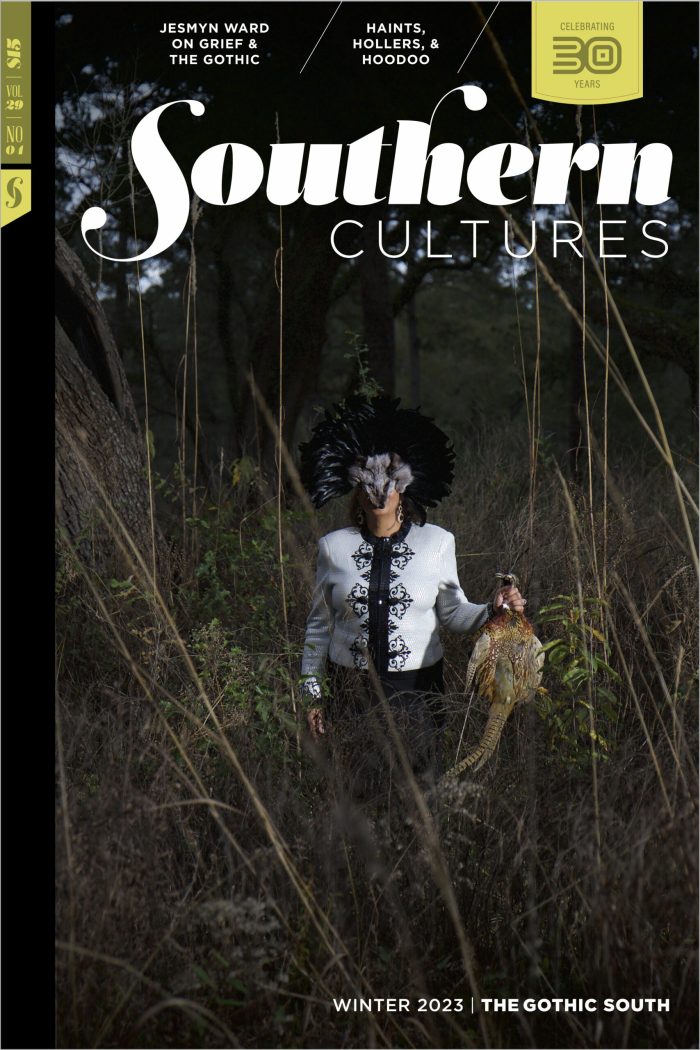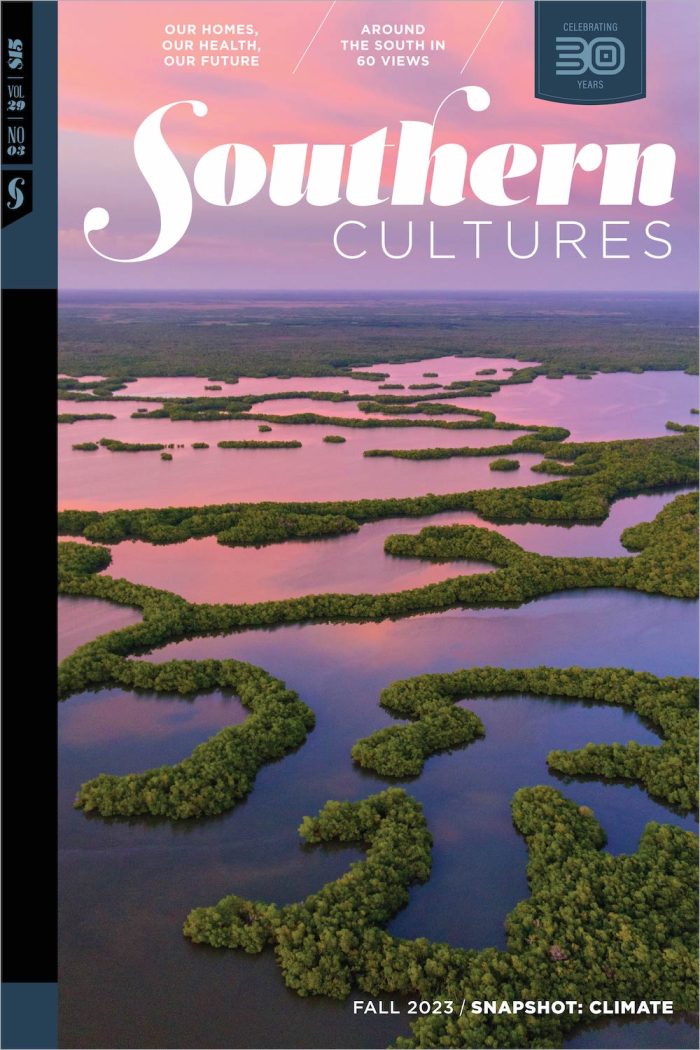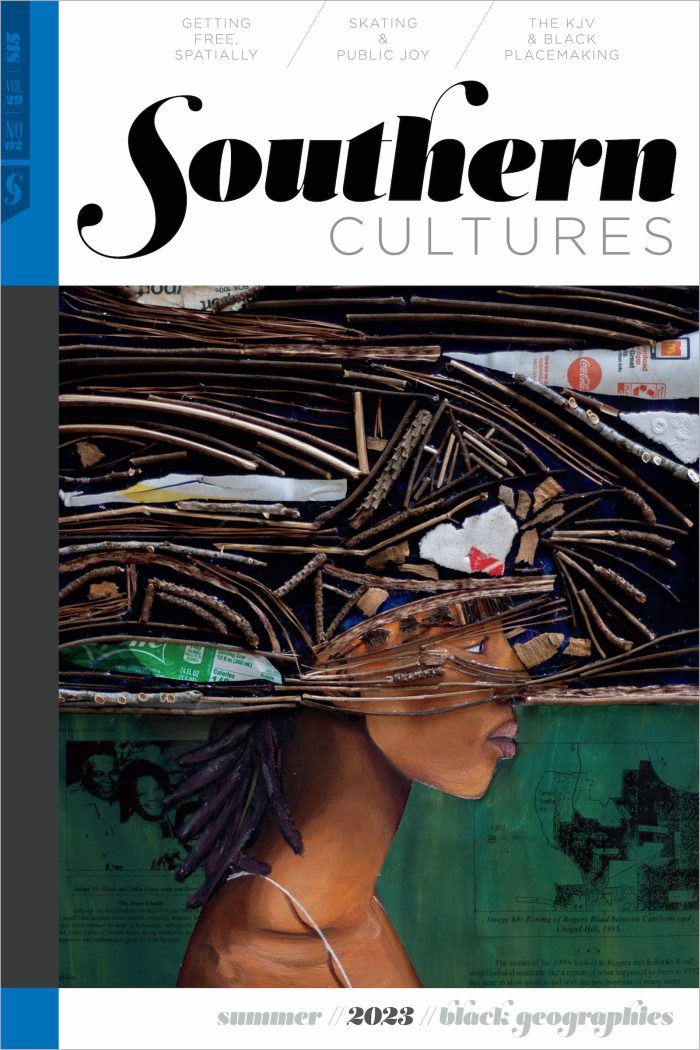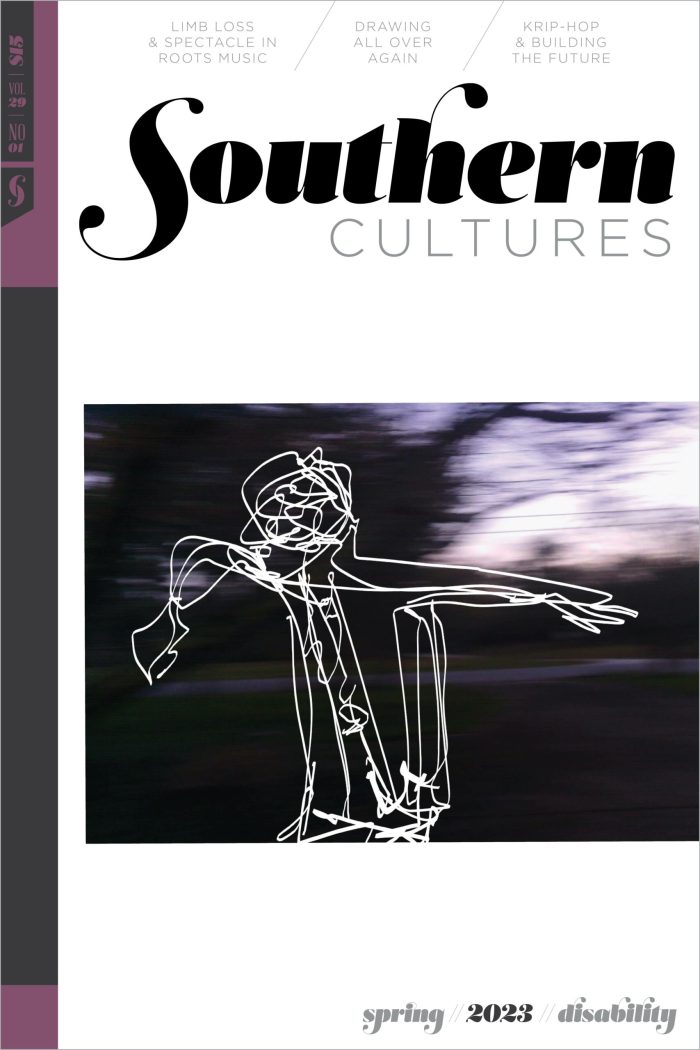BUY ACCESS
by Harry L. Watson
“Manners can cover everything. Clothing, liquor, and cigarettes. Church and family. Weddings, funerals, and politics. Race, class, and sex. Especially sex.” Novelist Elizabeth Spencer writes hauntingly of two divergent experiences from her childhood in Carrollton, Mississippi. One chapter of her memoir, Landscapes of the Heart, tells of Miss Beauregard Somerville, an imposing dowager who lived »
". . . standing under a shower of blessings"
by William R. Ferris
“One, two, three. I just waded out . . . through the muck. And then I got in his sailboat. Of course I was wet, but you can’t ask William Faulkner to wring you out, I guess. It hadn’t occurred to me until this minute that I might have.” BILL FERRIS: Eudora, I want to »
BUY ACCESS
The 2002 North Carolina Flue-Cured Tobacco Tour
by Barbara Hahn
“The medical costs of dying young appear to ring a heavier charge on the public purse than do the myriad ills of old age. Movies and television portray Big Tobacco as evil personified, the devil, the beast.” “Someone in Chapel Hill actually thinks about tobacco?” I’ve heard this sentiment twice already today, but this time »
BUY ACCESS
What About the Disappearing Southerner?
by Ashley B. Thompson,
Larry J. Griffin
“Are southerners a dying breed?” Profound transformations in the South since the 1960s have led many observers to sound the region’s death knell. Distinctive and exceptional no longer, they say, the region has been disappearing, vanishing, shrinking, and converging with mainstream America for decades, a victim of relentless incorporation into mass society. In a brief »
Essay
BUY ACCESS
On the Trail of an Alabama Badman
by Burgin Mathews
“Over the next two years, Morris Slate—known forever as “Railroad Bill”—terrorized trains, illegally riding the south Alabama freighters, often robbing them of their goods and occasionally engaging in shootouts with resisting trainmen or police. Eventually, in one of those shootouts, he added murder to his record.” Railroad Bill, the “notorious Negro desperado” of Escambia County, »
BUY ACCESS
by Robert Morgan
“. . . From that pit you can’t see much official Washington, just sky and trees and names and people . . .” What we see first seems a shadowor a retaining wall in the park,
BUY ACCESS
by Elaine Neil Orr
“What I most recall is the sun slamming down, ricocheting off tin roofs of mud and plaster houses that duplicated one another endlessly down a thousand bicycle paths, splashes of puddles during the rains, and a hundred women on their way to market.” When I was a small girl in Nigeria, my father, after his »
BUY ACCESS
by Michael Kreyling
University of Georgia Press, 2002 Georgia, like all southern states, boasts its own traditions. In April there is the Masters, where broadcast money is less important than the exquisite pleasures of total control of the event, where the field is restricted, where elderly white gentlemen with first names like Hootie talk about golf shots of »
BUY ACCESS
by John C. Inscoe
University of North Carolina Press, 2002 The Ozarks have long suffered from an image problem. Even compared with Appalachia—itself no stranger to degrading stereotypes and blatant misrepresentation—these other southern highlands have been exceptionally maligned. One of the region’s few definitive studies, folklorist Vance Randolph’s The Ozarks, was tellingly subtitled An American Survival of Primitive Society; »
